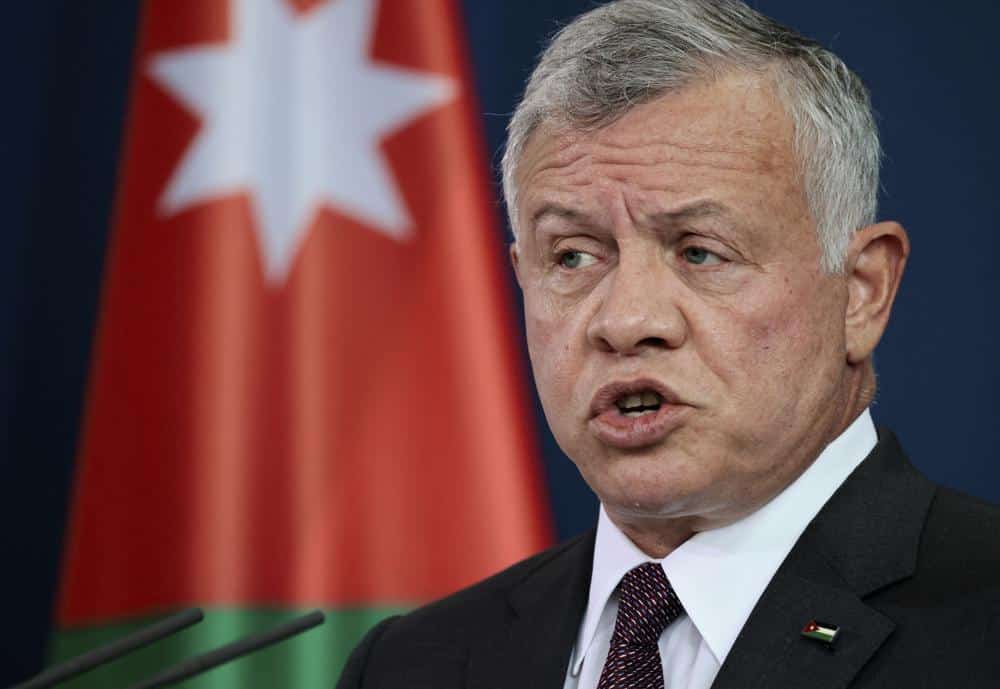At a conference in Cairo, the three leaders – President Abdel Fattah El Sisi of Egypt, King Abdullah of Jordan, and Mahmoud Abbas of Palestine – urged Israel to keep the existing conditions at Jerusalem’s most sacred location.
They also warned that “illegal and unilateral” measures by Israel’s far-right government must stop as they are undermining the chances of a Palestinian-Israeli settlement.
The leaders also discussed the importance of Amman in its capacity as the custodian of protecting Jerusalem’s Al Aqsa Mosque.
The leaders also called on the international community to ensure that Palestinians were protected and two Palestinian factions were urged to come together under the new government.
The trio of leaders convene regularly to discuss strategies for Israel and come up with solutions to revive the long-stalled Palestinian-Israeli peace process. This Tuesday’s meeting was of particular importance after the re-election of Prime Minister Benjamin Netanyahu who has formed the most religious and hardliner government in Israel’s history.
The joint statement noted the growth in Jewish settlements in the West Bank, which included the seizure of Palestinian land, destruction of Palestinian dwellings, and Israeli military incursions into Palestinian towns.
In the days after the inauguration of Netanyahu, King Abdullah II of Jordan issued a warning to Israel’s new right-wing government not to increase pressure on Palestinians in Jerusalem or undermine the kingdom’s influence in the city.
Israel’s relationship with Egypt and Jordan
In 1979 and 1994 respectively, Israel entered into peace treaties with Egypt and Jordan. Both of these countries are neighbours of Israel.
Yet tensions arise between Israel and Palestinians, particularly during periods of violence or when Israel is accused of using an excessive amount of force against demonstrators.
Egypt has played a role in mediating the Israeli-Palestinian conflict for several decades. Since the 1970s, Egypt has been involved in negotiations and peace talks aimed at resolving the conflict. In 1978, Egypt was a key player in the Camp David Accords, which resulted in the signing of a peace treaty between Israel and Egypt.
Egypt also played a role in the Oslo Accords in the 1990s and has continued to be involved in efforts to broker a lasting peace between Israel and the Palestinians. Egypt’s role as a mediator has been particularly important in the Gaza Strip, where Egypt has worked to maintain a ceasefire and prevent the escalation of violence between Israel and Palestinian militant groups.
Itamar Ben-Gvir, a member of the right-wing party in the Netanyahu government, was met with global criticism after he visited the Al Aqsa compound in East Jerusalem this month. The US, Israel’s most significant ally, also expressed their disapproval.
For many years, non-Muslims were only allowed to visit the Al Aqsa compound on certain occasions and not pray there. However, recently, an increasing amount of Jewish people, mainly Israeli nationalists, have been engaging in secret prayer at the site, which Palestinians have condemned.
Jordan and Egypt both issued strong statements of disapproval concerning the visit, cautioning Israel against making any alterations to the standing of East Jerusalem and alerting the new government against any provocative actions.
The Al Aqsa Mosque, deemed the third holiest Islamic site, is the focus of Palestinian aspirations for a future independent state, with East Jerusalem acting as its capital.
Image Credit: Hannibal Hanschke/Pool via AP, File



















